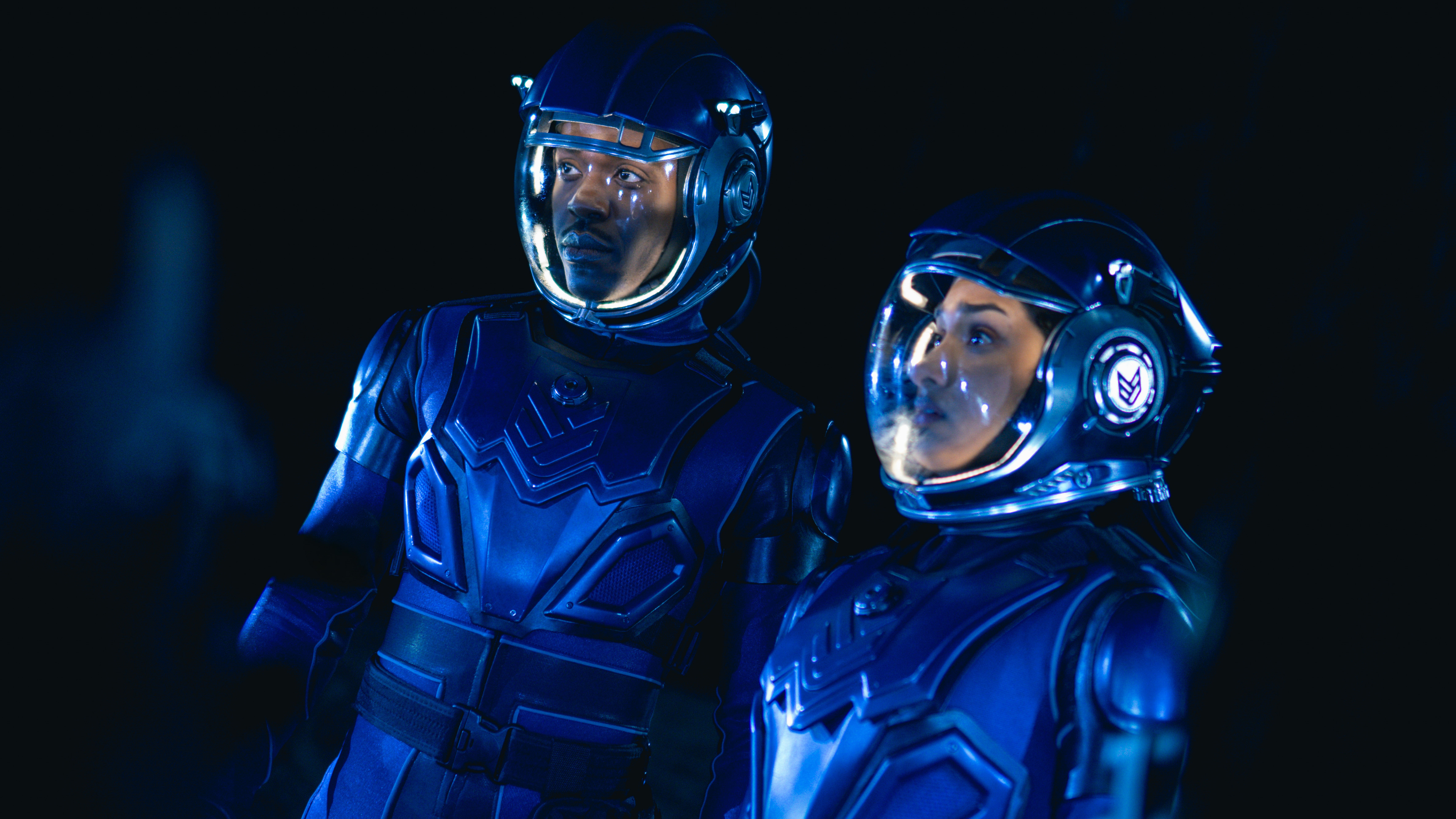Why you can trust GamesRadar+
Wilde is one of those films that only us Brits should ever be allowed to make. It's a costume drama in the finest traditions of the genre, all starched collars and gentle walks in autumnal, leaf-strewn parks - not so much Men In Black as Men In Tweed. It's heavy on the finely-honed verbiage, has complex, believable characters and is thoroughly soaked with chronologically accurate detail. The story takes in sexual repression, guilt, homosexuality, class structures and good ol' fashioned lust as it flits around from one gorgeously created set-piece to another. The result is a thrilling, enthralling and intelligent cinematic re-telling of the great grandmother of celebrity scandals, the century-old equivalent of a modern smeared-across-the-first-six-pages gutter press exposé. Your typical Merchant Ivory/Austen adaptation it ain't.
Some of the essential elements do remain the same - dapperly-dressed gents, be-corseted, cleavage-thrusting ladies and the inevitable scenes of polite Victorian society spreading bon mots, rumours and plain gossip. This much we have all seen before. But Wilde goes much further than these conventions. For this is a brave, forthright, and sexually honest depiction of homosexuality and Victorian society's abhorrence of it. There are no gentle camera cut-aways or symbolic lightings of cigarettes to hide the rumpy pumpy here. This is an earnest chronicling of one man's descent into a personal hell and the catastrophic effect his actions have on all those around him. Wilde's famous plays are barely referred to throughout - it's the man and his life that are the focus here. For WIlde is both a revenge and tragedy piece rolled into one, and is engrossing in either regard.
The film's great strength, though, is Fry himself. Gone is the trademark arrogant smirk and elitist intellectual superiority of old. The recent emotional trauma in his own life (his now infamous wracked-with-doubt sojourn to Belgium and near-suicide attempt - the lives of Wilde and Fry share some startling similarities) appear to have helped him on screen no end. His superb portrayal of Wilde is at once understated and subtle, creating a dense and complex character torn by extremes of guilt, lust and regret as he brilliantly carries this literary scandal period flick through to the inevitable tear-jerking denouement. Even though you know what's going to happen - always a key problem for biopics of famous people - Fry is so engaging and sympathetic that you can't help being caught up in the tragic events portrayed.
Ably assisting this are the rest of the cast. Youthful Jude Law, as the dashing but cocksure Alfred Douglas, plays the amoral, capricious, pouting pretty boy with frightening ease. Alfred's father, the dastardly Marquis, is just as ably handled by Tom Wilkinson, who seethes, rages and plots with a towering presence. Even the supporting actors - Zoë Wanamaker, Jennifer Ehle and Vanessa Redgrave - offer far more than mere camera fodder.
But this is Fry's movie, nothing more, nothing less. He naturally takes the best lines (he is, after all, playing the witty, literary and tortured genius), and his asymmetrical facial presence on screen is almost up to the standards of De Niro in its sheer charisma. He is the central protagonist in nearly every scene, and respectfully, no-one attempts to steal the show from under him. Wilde is both a restrained and yet, paradoxically, passionate and exciting film that cannot possibly fail to move you. Go see.
A beautifully-made, compelling, resonant, multi-textured and ultimately deeply moving biopic. Fry excels as Wilde in a role he was born to play and is blessed with an admirably talented supporting cast that calls on the usual Brit suspects. Wilde, the film, has not an ounce of fat to spare. Fabulous.
The Total Film team are made up of the finest minds in all of film journalism. They are: Editor Jane Crowther, Deputy Editor Matt Maytum, Reviews Ed Matthew Leyland, News Editor Jordan Farley, and Online Editor Emily Murray. Expect exclusive news, reviews, features, and more from the team behind the smarter movie magazine.


